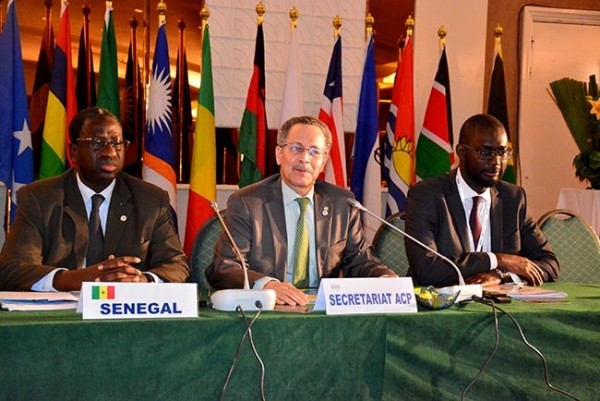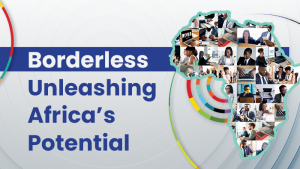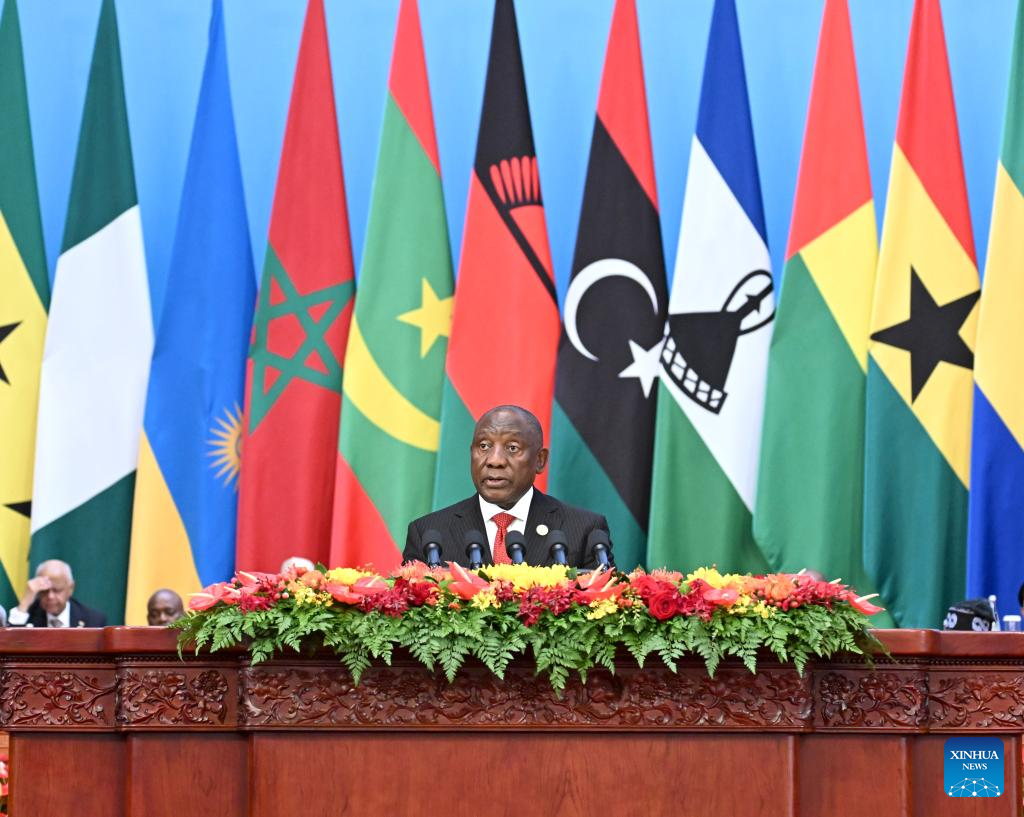
Africa has long been at the centre of global economic discussions, with hopes for the continent to achieve rapid growth and development. However, its ambition to progress often faces numerous challenges that stall or even reverse this progress. Reading The Economist’s September 21st issue, How the Poor Stopped Catching Up, brought many of these issues into focus.
While I agree with much of the analysis, I found the recommendation for liberalization outdated. Nonetheless, there are essential steps Africa must take within this decade to improve the well-being of its people.

First, we must acknowledge the turbulent economic development journey many African countries have faced, shaped by colonial histories, political upheavals, and socio-economic inequalities.
In the post-colonial era, virtually every nation has struggled with the residual impacts of foreign domination, including the extraction of resources, the imposition of artificial borders, and the establishment of power structures favouring a minority elite.
These historical legacies have left many African countries with fragile institutions and economies heavily reliant on aid and a narrow range of exports.
However, aid has often been weaponized, serving as a tool of influence rather than genuine support. Foreign aid, frequently conditional, is used to exert control, with donor countries dictating terms that serve their geopolitical interests. These dynamics have entrenched dependency and stifled local initiatives, undermining the sovereignty crucial for sustainable development.
In some cases, aid has disrupted local economies, created imbalances and fostered corruption. For instance, food aid, intended to alleviate hunger, can flood local markets, driving down prices for domestically produced goods.This undercuts local farmers, discouraging production and leading to declining agricultural productivity. Instead of empowering communities, aid can inadvertently perpetuate dependency cycles, inhibiting the growth of self-sustaining economies.

Africa’s reliance on a narrow range of exports further compounds its economic vulnerability. Commodity prices are notoriously volatile, and a sudden drop can devastate national economies.
Countries reliant on oil, minerals, or agricultural products often experience severe downturns when global prices plummet.This over-reliance stifles diversification, limits industrialization, and prevents the development of a resilient economic infrastructure. Diversifying export portfolios and investing in value-added industries are essential for sustainable economic growth.
Beyond economic challenges, social and political factors hinder progress. Corruption remains pervasive in many African countries, undermining governance and eroding public trust in institutions. Corruption diverts resources from development projects, exacerbates inequality, and stalls progress. Effective governance is crucial for development, and combating corruption must be a top priority to create a more equitable society.
According to UNCTAD’s Economic Development in Africa Report 2020, Africa loses an estimated $88.6 billion—3.7 % of its GDP—to illicit capital flight every year. This staggering figure highlights the severity of corruption, which drains resources that could be used for development. Addressing this illicit flow of funds is essential to promoting economic growth, reducing inequality, and restoring public trust in institutions.
 Political instability and conflict are significant barriers to development. Countries experiencing civil unrest, coups, or prolonged political crises see their economies deteriorate as investment flees, infrastructure is destroyed, and human capital is lost. For example, the ongoing conflict in Sudan has reversed progress.
Political instability and conflict are significant barriers to development. Countries experiencing civil unrest, coups, or prolonged political crises see their economies deteriorate as investment flees, infrastructure is destroyed, and human capital is lost. For example, the ongoing conflict in Sudan has reversed progress.
Stable political environments are vital for economic growth. Despite the colonial imposition of arbitrary borders, Africa must find amicable solutions that foster unity and cooperation.
These borders, drawn without regard for ethnic, linguistic, or cultural realities, have sown discord and conflict. However, Africa’s shared history and interconnected futures demand a collective effort to transcend these divisions.
Education and human capital development are also critical for economic prospects. Many developing countries struggle with inadequate education systems, resulting in a workforce that lacks the skills for higher productivity and innovation. Investment in education and training is essential for empowering individuals and driving economic growth.
 Additionally, climate change poses a severe threat to African economies, which are particularly vulnerable to its impacts. Rising temperatures, changing rainfall patterns, and more frequent extreme weather events could devastate agriculture, displace populations, and strain resources.
Additionally, climate change poses a severe threat to African economies, which are particularly vulnerable to its impacts. Rising temperatures, changing rainfall patterns, and more frequent extreme weather events could devastate agriculture, displace populations, and strain resources.
Addressing climate change through sustainable practices and international cooperation is critical for economic resilience. Moreover, overexploiting natural resources, such as forests, fisheries, and minerals, risks environmental degradation, undermining long-term economic prospects. Sustainable resource management is essential to balance growth with environmental conservation.
The digital divide remains another significant barrier to development. Limited access to technology and the internet restricts education, business, and innovation opportunities.
Bridging this divide through investment in digital infrastructure can unlock new avenues for growth. Inadequate physical infrastructure, such as roads, electricity, and water supply, also hampers development by increasing business costs and limiting market access. Robust infrastructure investment is crucial to support economic activity and improve living standards.
 Despite these challenges, Africa has opportunities.Regional integration initiatives, such as the African Continental Free Trade Area (AfCFTA), offer promising pathways forward.Promoting intra-African trade and economic collaboration can transcend artificial boundaries and build a more integrated and prosperous continent.
Despite these challenges, Africa has opportunities.Regional integration initiatives, such as the African Continental Free Trade Area (AfCFTA), offer promising pathways forward.Promoting intra-African trade and economic collaboration can transcend artificial boundaries and build a more integrated and prosperous continent.
Cross-border infrastructure projects and policy harmonization can enhance connectivity and contribute to economic growth and social cohesion.
Africa’s people must recognize that even in homogenous countries, differences exist based on religion or clan. It is up to the people to decide what is more important than focusing on arbitrary borders. The continent’s diverse ethnicities, languages, and traditions can be a source of strength, not division. Africans must seek common ground that transcends superficial boundaries, embracing unity in diversity.
By fostering an inclusive environment where all groups feel represented and valued, Africa can build a resilient society capable of overcoming its challenges.
 Africa can draw lessons from India and China, which, despite internal differences, have recognized that unity is their greatest asset.Both nations have turned their diversity into strength, fostering national cohesion and economic progress. Similarly, Africa, with its rich cultural tapestry, can transform diversity into a force for development. By prioritizing unity, African nations can better address their challenges and seize opportunities for growth and prosperity.
Africa can draw lessons from India and China, which, despite internal differences, have recognized that unity is their greatest asset.Both nations have turned their diversity into strength, fostering national cohesion and economic progress. Similarly, Africa, with its rich cultural tapestry, can transform diversity into a force for development. By prioritizing unity, African nations can better address their challenges and seize opportunities for growth and prosperity.
While Africa faces challenges such as economic dependency, corruption, political instability, and climate change, it holds immense potential for growth and development.
If Africa made strategic investments in education, infrastructure, and regional integration and fostered unity in diversity, Africa could build a resilient and prosperous future. The path forward lies in harnessing its rich cultural heritage and collective strength to achieve sustainable development.
- The Author is the Kenya’s Ambassador to Belgium & European Union(EU)










